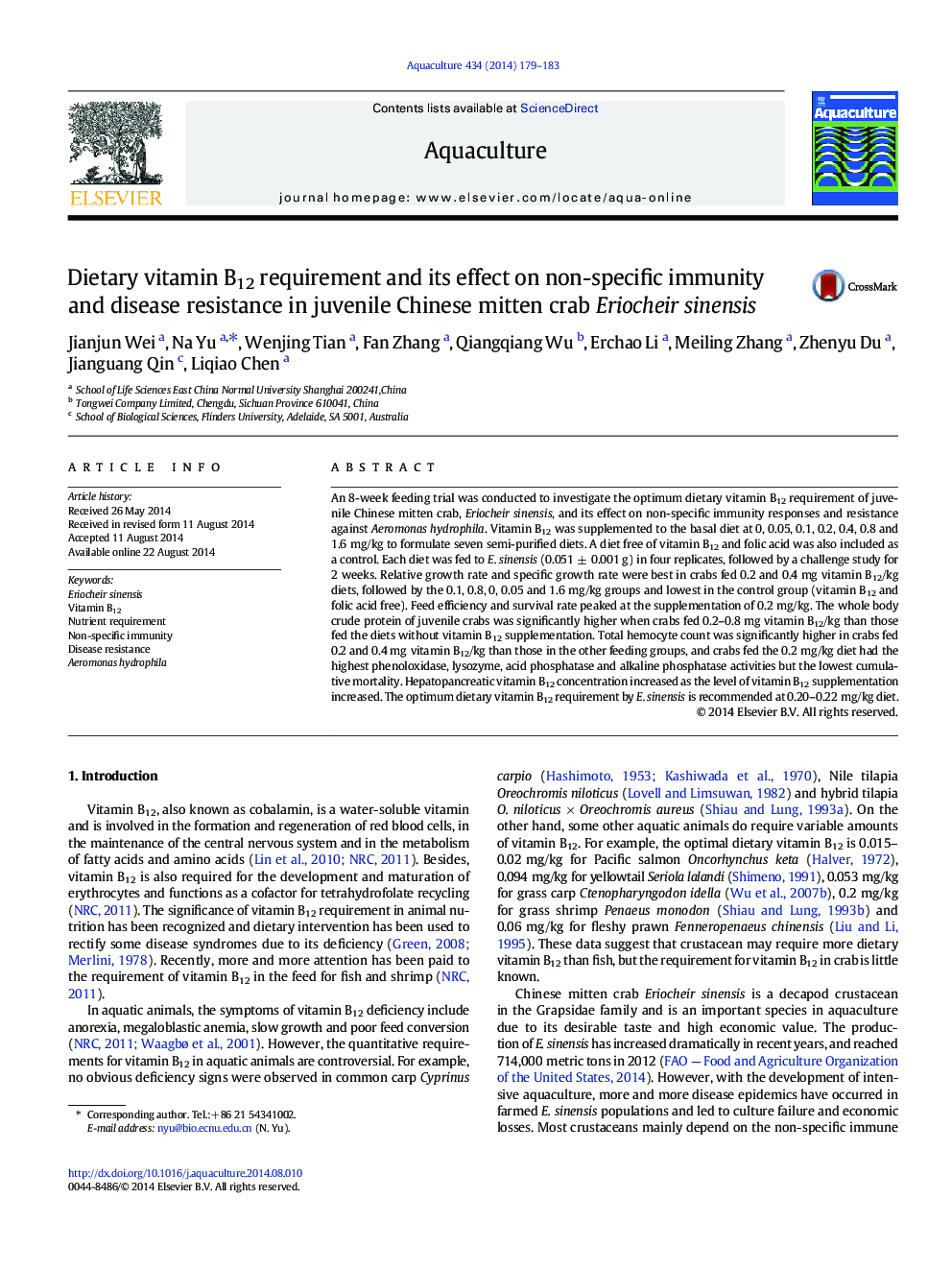| Article ID | Journal | Published Year | Pages | File Type |
|---|---|---|---|---|
| 2421689 | Aquaculture | 2014 | 5 Pages |
•Dietary vitamin B12 deficiency leads to poor growth performance of E. sinensis.•The optimal dietary vitamin B12 level for E. sinensis is 0.20–0.22 mg/kg diet.•Optimal dietary vitamin B12 can improve the non-specific immunity of E. sinensis.
An 8-week feeding trial was conducted to investigate the optimum dietary vitamin B12 requirement of juvenile Chinese mitten crab, Eriocheir sinensis, and its effect on non-specific immunity responses and resistance against Aeromonas hydrophila. Vitamin B12 was supplemented to the basal diet at 0, 0.05, 0.1, 0.2, 0.4, 0.8 and 1.6 mg/kg to formulate seven semi-purified diets. A diet free of vitamin B12 and folic acid was also included as a control. Each diet was fed to E. sinensis (0.051 ± 0.001 g) in four replicates, followed by a challenge study for 2 weeks. Relative growth rate and specific growth rate were best in crabs fed 0.2 and 0.4 mg vitamin B12/kg diets, followed by the 0.1, 0.8, 0, 0.05 and 1.6 mg/kg groups and lowest in the control group (vitamin B12 and folic acid free). Feed efficiency and survival rate peaked at the supplementation of 0.2 mg/kg. The whole body crude protein of juvenile crabs was significantly higher when crabs fed 0.2–0.8 mg vitamin B12/kg than those fed the diets without vitamin B12 supplementation. Total hemocyte count was significantly higher in crabs fed 0.2 and 0.4 mg vitamin B12/kg than those in the other feeding groups, and crabs fed the 0.2 mg/kg diet had the highest phenoloxidase, lysozyme, acid phosphatase and alkaline phosphatase activities but the lowest cumulative mortality. Hepatopancreatic vitamin B12 concentration increased as the level of vitamin B12 supplementation increased. The optimum dietary vitamin B12 requirement by E. sinensis is recommended at 0.20–0.22 mg/kg diet.
